石榴籽·同心圓 | 撒拉族:“許乎”——綻放的“石榴花”
【編者按】1994年,中央第三次西藏工作座談會拉開了對口支援西藏的帷幕,今年是對口支援西藏工作30年。在中國56個民族中,有這樣一個與藏族人民“世代修好”的民族——撒拉族。千百年來,撒拉先民定居並紮根于青藏高原,各民族之間世代傳承著一種跨族交往關係——“許乎”。
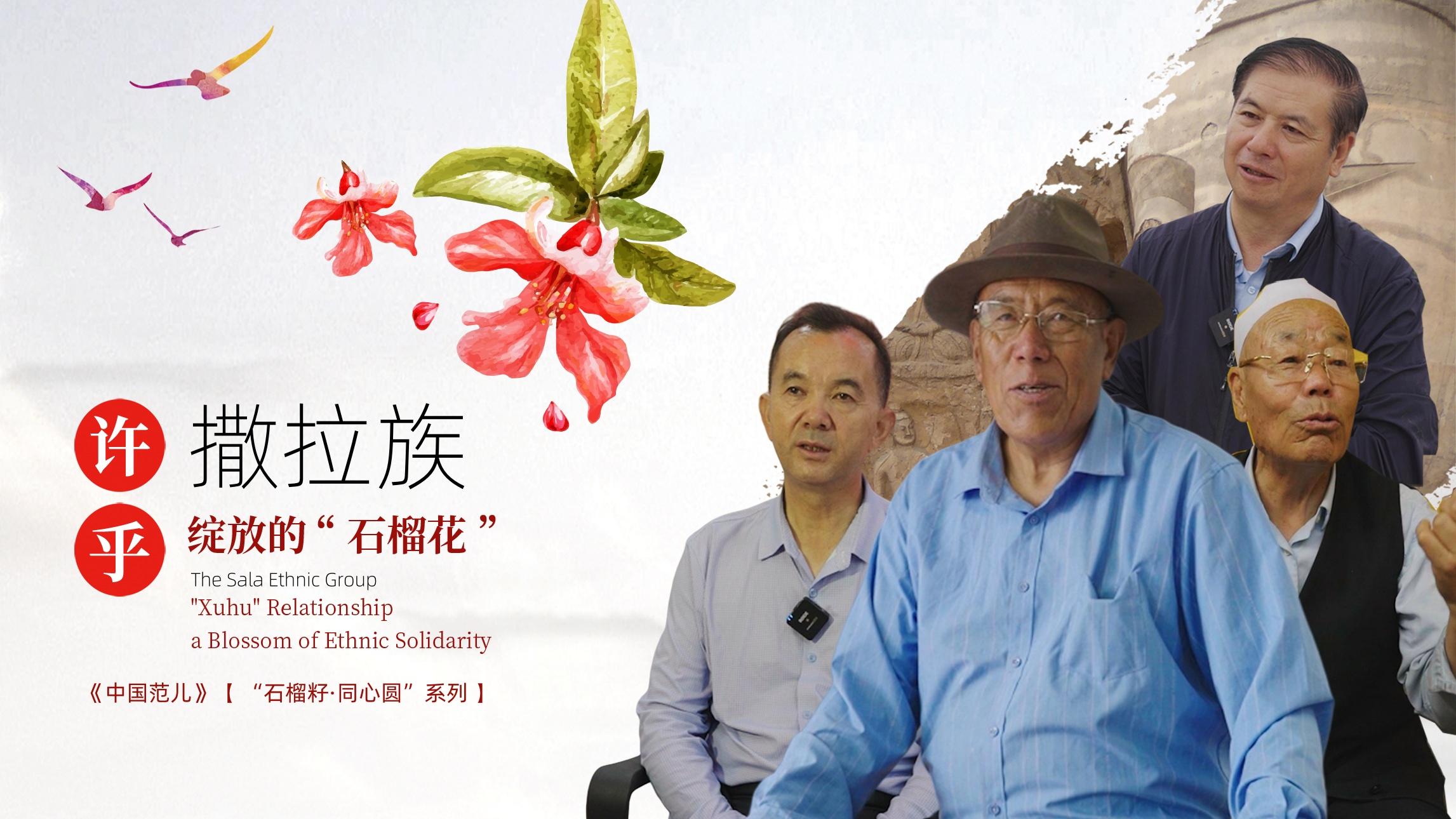
“難怪,老紅軍邵明先後來跟我説,撒拉人,是真正的剛強民族,我從沒見過他們悲觀失望的時候,總説一切都會有最好的安排。”——摘自《紅星照耀黃河》
"No wonder, the Red Army veteran Shao Mingxian has told me that the Salar is a truly resilient ethnic group. I have never seen them in a state of pessimism or disappointment--they always believe that everything will end on a positive note." -- Quote from book Red Star Over the Yellow River
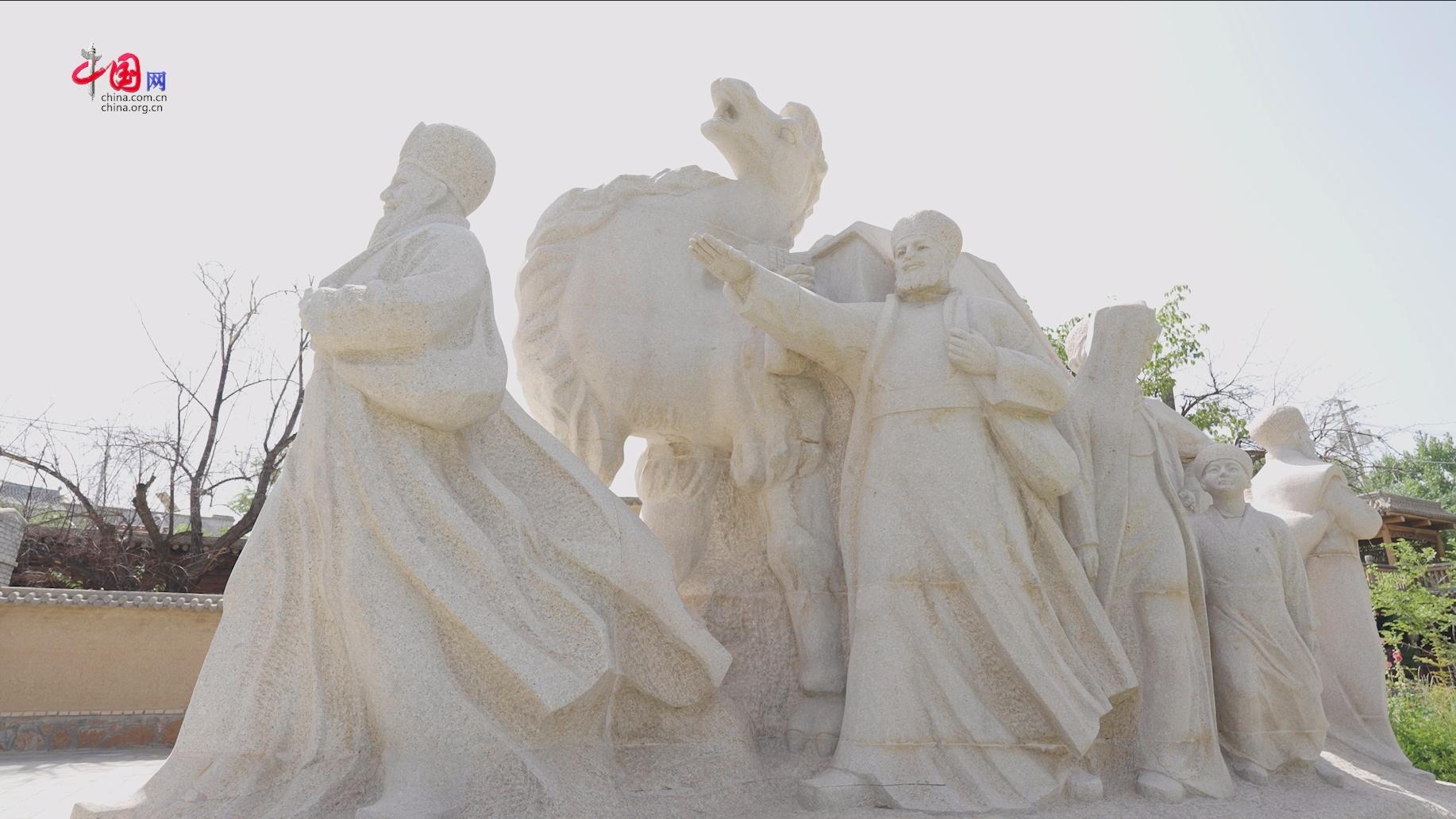
有這樣一個部落,幾百年前,從遙遠的中亞啟程,一路東遷……駝鈴聲聲,沙塵漫漫,最終紮根于青藏高原,這就是撒拉族。
Centuries ago, there was a tribe that embarked on an eastward journey from remote Central Asia. They traversed the vast lands with the sound of camel bells and amidst the swirling sands. Eventually, they settled in the Qinghai-Xizang Plateau, and this tribe is known as the Salaethnic group.
撒拉族祖先定居於青海循化後,與周圍藏、回、漢、蒙古等族長期雜居融合、繁衍,逐步形成了一個穩定的民族共同體。長久以來,各民族之間世代傳承著一種跨族交往關係——“許乎”。
After the ancestors of the Salaethnic group settled in Xunhua, now a Sala autonomous county in west China's Qinghai Province, they coexisted and integrated with neighboring ethnic groups such as Tibetan, Hui, Han, and Mongolian. Over time, they gradually formed a stable coexisting ethnic community. For generations, there has been a cross-ethnic relationship known as "Xuhu" that has been passed down among various ethnic groups.
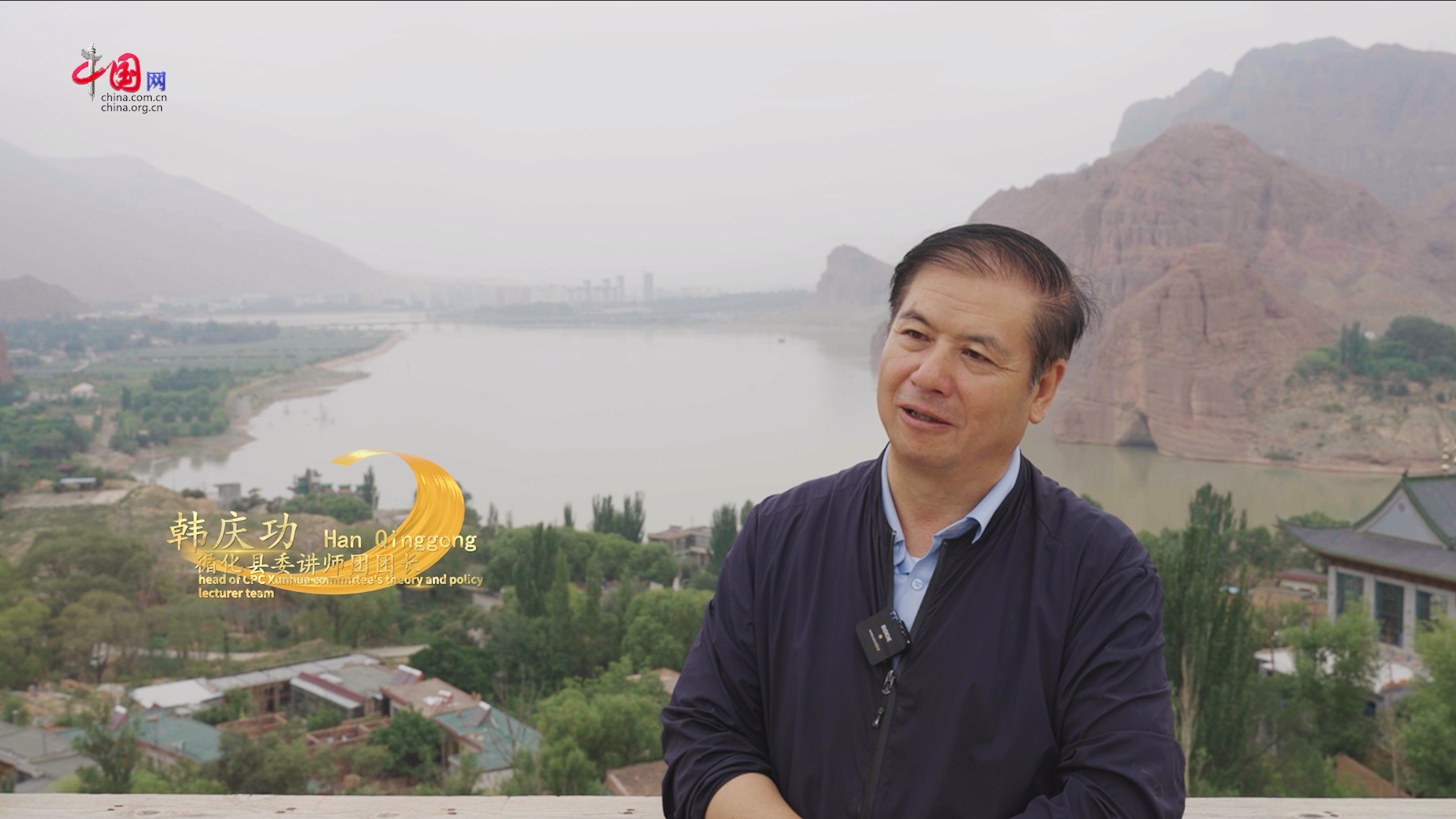
韓慶功(循化縣委講師團團長)
Han Qinggong, head of CPC Xunhua committee's theory and policy lecturer team
韓慶功:你一定要生存下來,沒別的地方去了。那一定要生存下來你要怎麼辦,最後他們就想到,向別的民族靠攏,最先靠攏的就是藏族。我覺得這是一種文化上的智慧。後來呢,兩個民族之間生活上交往、經濟上交流、文化上交融,就形成了今天我們所説的“許乎文化(關係)”。
Han Qinggong: You must survive, as there is nowhere else to go. In order to ensure their survival, they came up with the idea of approaching other ethnic groups, with the Tibetans being the first choice. I believe this is a cultural wisdom. As time went on, there were interactions in daily life, economic exchanges, and cultural integration between the two ethnic groups, which eventually formed a relationship what we now call "Xuhu."
許乎,藏語譯音,意思是值得信託的朋友或交往,語含親切。
Xuhu, a transliteration from Tibetan, means a trusted friend or relationship, connoting a sense of warmth and closeness.
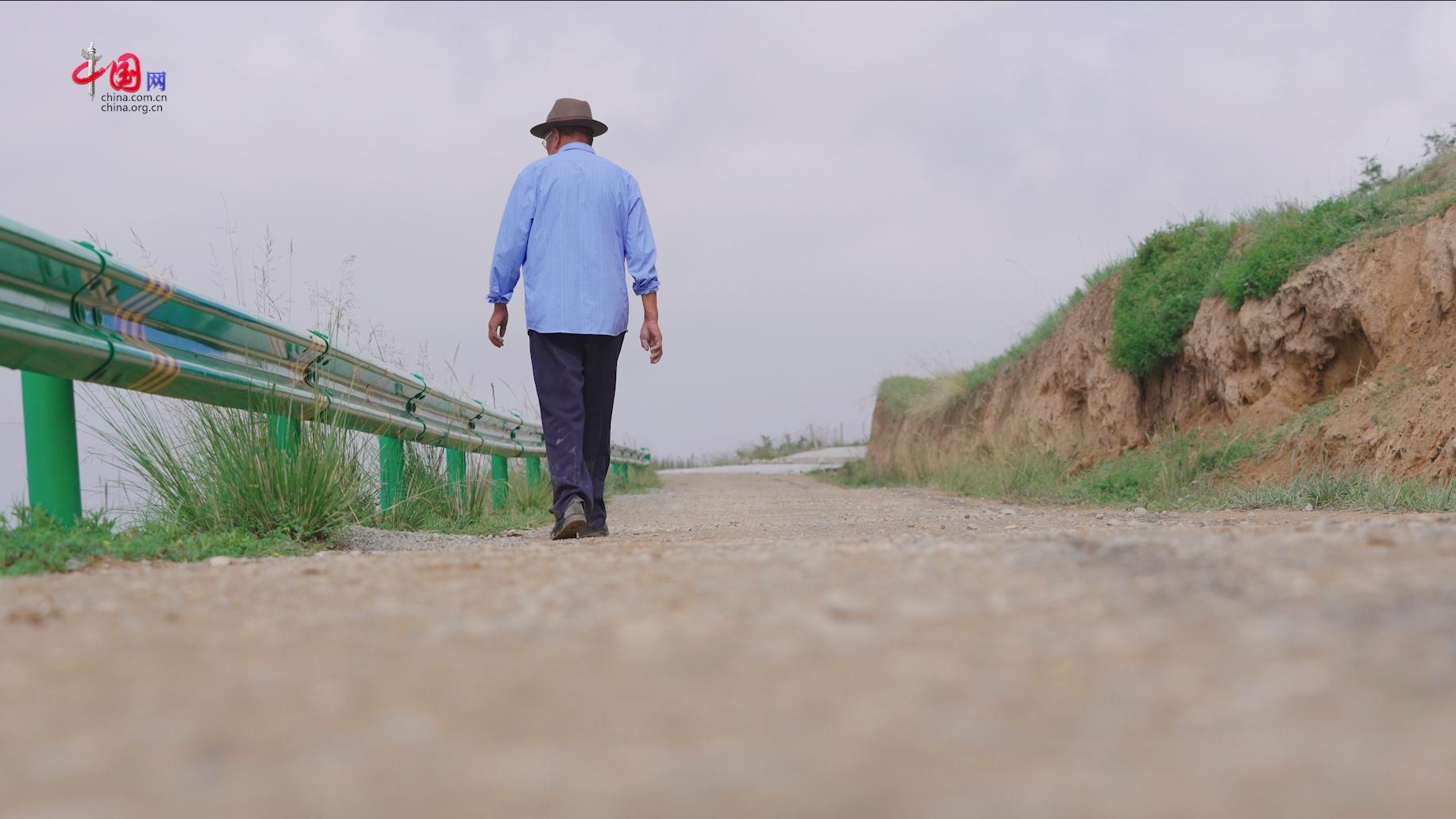
來塘村是一個撒拉族村落,山路崎嶇且常有塌方,就是在這樣一個偏僻而又語言不通的環境裏,一位藏族教師卻用擔當和愛心堅守了30多年,延續著千百年來親如一家的“許乎”關係。
Laitang Village is a Sala village, nestled in the rugged mountains where landslides are frequent. In such a remote and linguistically isolated environment, a Tibetan teacher has dedicated himself with responsibility and love for over 30 years, upholding the family-like"Xuhu" relationship that has lasted for centuries.
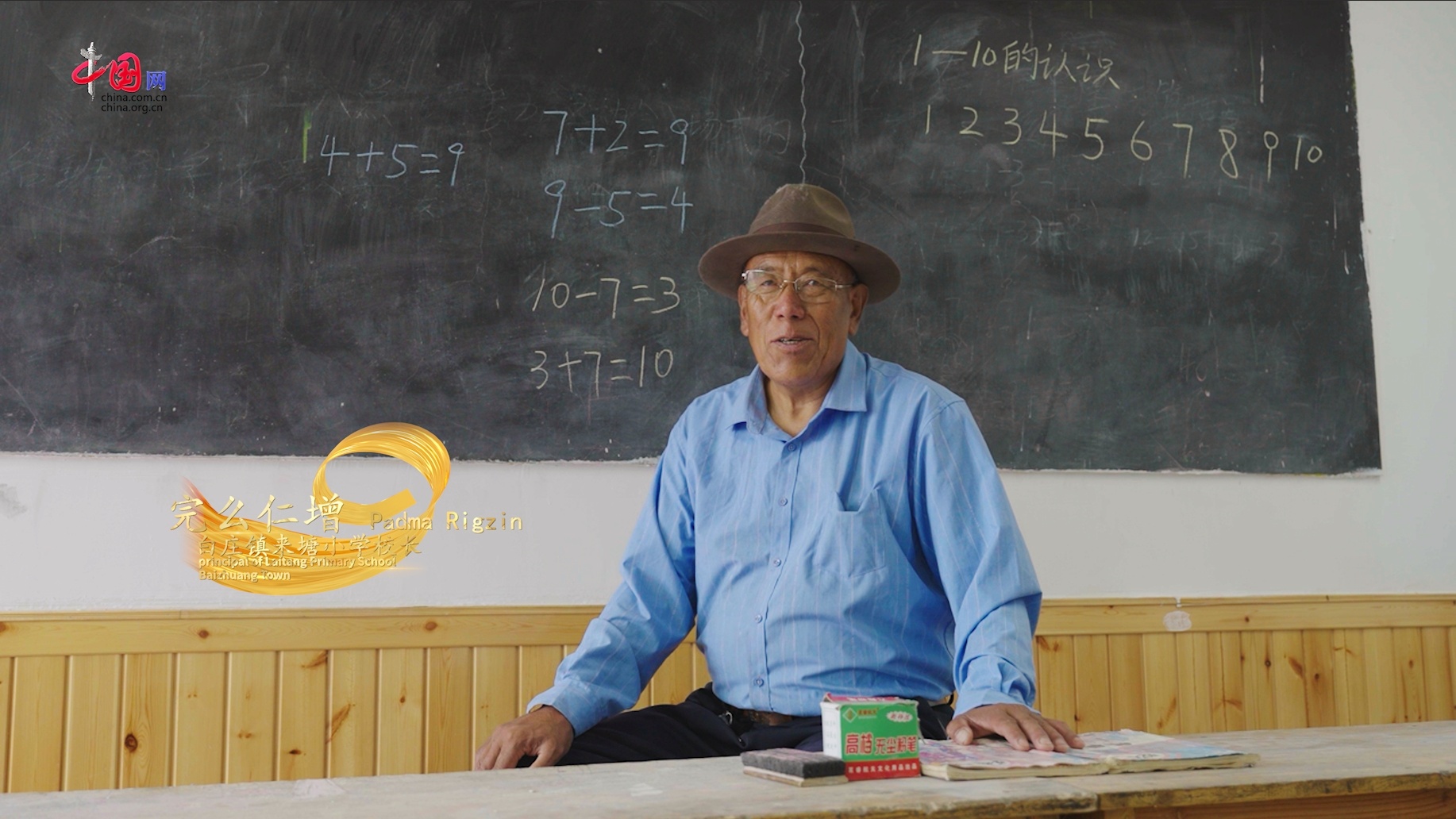
完麼仁增(白莊鎮來塘小學校長)
Padma Rigzin, principal of Laitang Primary School, Baizhuang Town
完麼仁增:我叫完麼仁增,是道幃鄉牙木村人,我是一個藏族老師。我90年4月份來的時候,我不懂撒拉語。然後,兩年時間慢慢地,跟村委會書記學了一點撒拉語。兩年過了以後,再問撒拉話我基本知道,現在我能説90%的撒拉語,我能説能聽。最近兩年,我們來塘村搬遷到了縣城,現在只(剩)兩三戶人家,目前只有四個學生。我是一個藏族,我的學生、這個村子都是撒拉族,但是我的撒拉族學生和我這個老師的關係非常好。
My name is Padma Rigzin, and I am from Yamu Village in Daowei Township. I am a Tibetan teacher. When I arrived here in April 1990, I did not understand the Salar language. However, over the course of two years, I gradually learned some Salar from the village committee secretary. After two years, I became proficient in speaking and understanding about 90 percent of the language. In the past two years, our village has relocated to the county from the Laitang village, where there are only two or three households remaining, with currently only four students. I am a Tibetan, and both my students and this village are Salar. Despite this, the relationship between my Salar students and me is very good.
今年,來塘村最後幾戶家庭將全部搬遷到縣城新家。完麼仁增説,只要有一個學生,他就會堅守這所來塘學校。
This year, the remaining few households in Laitang Village will all be relocated to their new homes in the county. Padma Rigzin said that as long as there is one student, he will remain committed to this village school.
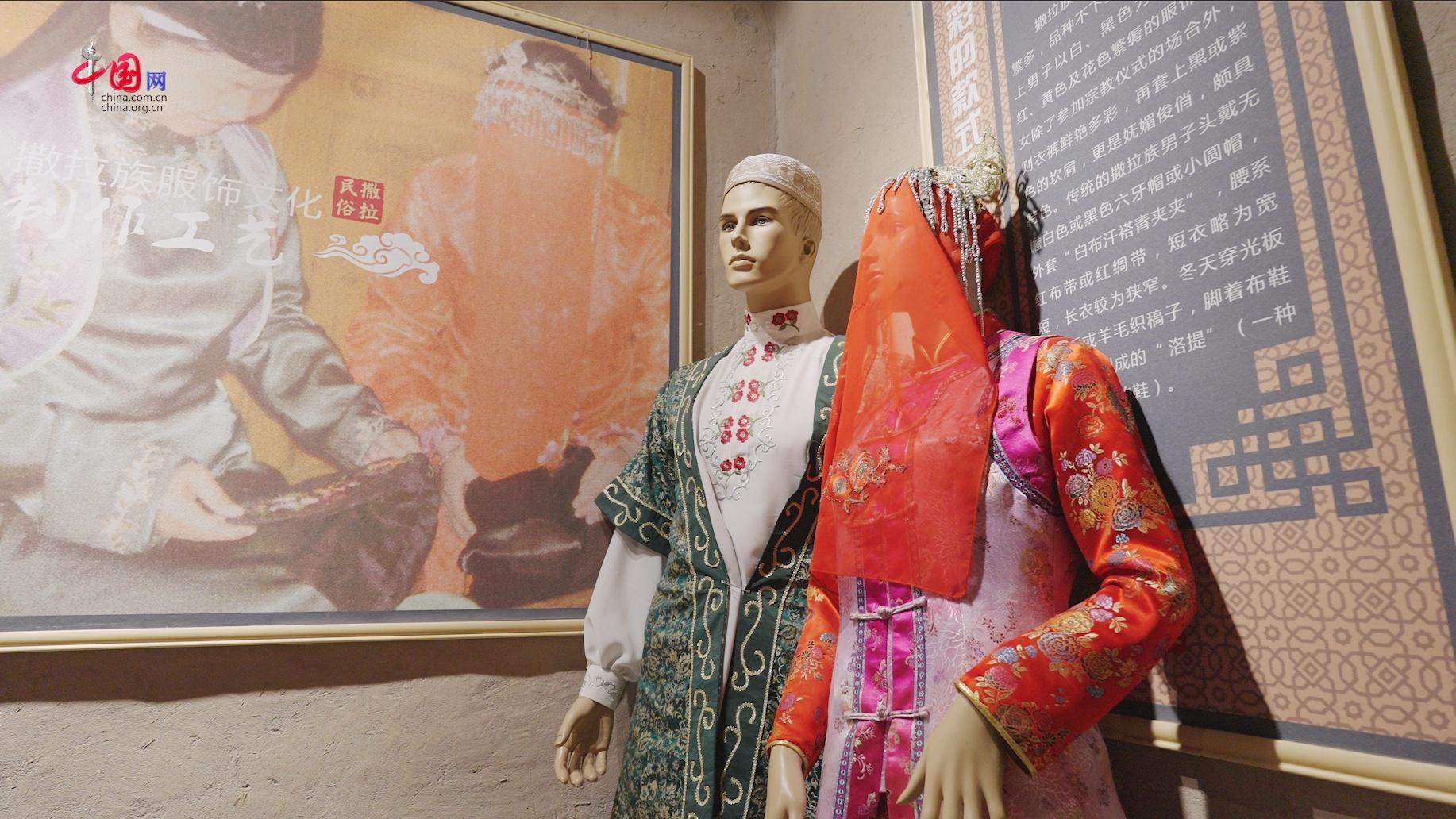
多民族生活在同一片土地上,使撒拉族的文化充滿了“融合”,婚禮、服飾、籬笆樓,都有著融合的色彩。風格迥異的清真寺聳立於街頭,不同信仰因“許乎”關係走到一起。
The coexistence of multiple ethnic groups in the same land has made the Salar culture full of integration. Their traditional weddings, costumes, and houses all exhibit cultural fusion. Diverse styles of mosques stand tall on the streets, and different faiths coexist due to the "Xuhu" relationship.
每逢藏族過新年,撒拉族會到藏族家裏串門拜年。撒拉族過古爾邦節,藏族則到撒拉族家裏道賀,建立了你來我往的傳統友誼。
During the Tibetan New Year, the Salar would visit Tibetan households to exchange New Year greetings. Similarly, during the Salar's Corban Festival, Tibetans would visit Salar households to offer congratulations, establishing a tradition of mutual friendship and interaction.
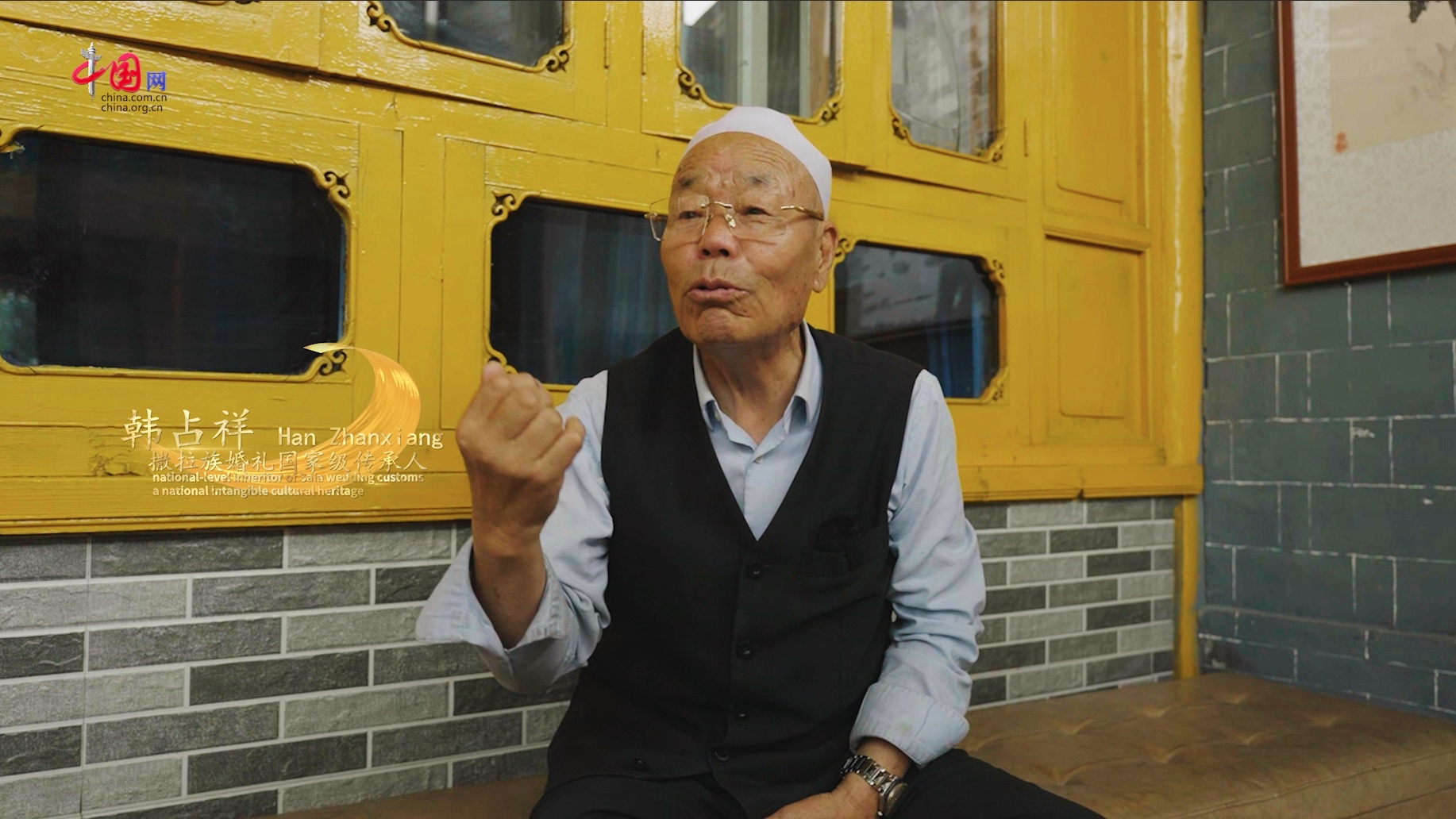
韓佔祥(“撒拉族婚禮”國家級傳承人)
Han Zhanxiang, national-level inheritor of Sala wedding customs, a national intangible cultural heritage
韓佔祥:撒拉族跟藏族已經成為一家人了。咱們“許乎文化(關係)”涉及到很多方面的問題。你比如説,咱們每年要封齋,封一個月的齋,我們一天不吃飯。藏族的熟人們來了後,給他倒茶他不喝,他説:“你們封齋,我們不喝。”彼此之間的尊重,尊敬尊重的關係,自覺不自覺地形成了兩個民族的統一文化。
Han Zhanxiang: The Sala and Tibetan ethnic groups have become like one family. Our "Xuhu" relationship involves many aspects. For example, every year we observe a month-long fasting period during which we do not eat during the day. When Tibetan acquaintances come, we offer them tea, but they refuse, saying, "We will not drink when you are fasting." This mutual respect has unconsciously formed an inclusive culture between the two ethnic groups.
撒拉族老人們説:“生活中如果少了藏語,少了與‘許乎’的交往,就如奶茶缺了鹽一樣,一下子就寡淡乏味了。”
The Sala elders have a saying: "If our lives were without the Tibetan language and without interaction with 'Xuhu', it would be like having butter tea without salt -- suddenly bland and tasteless."
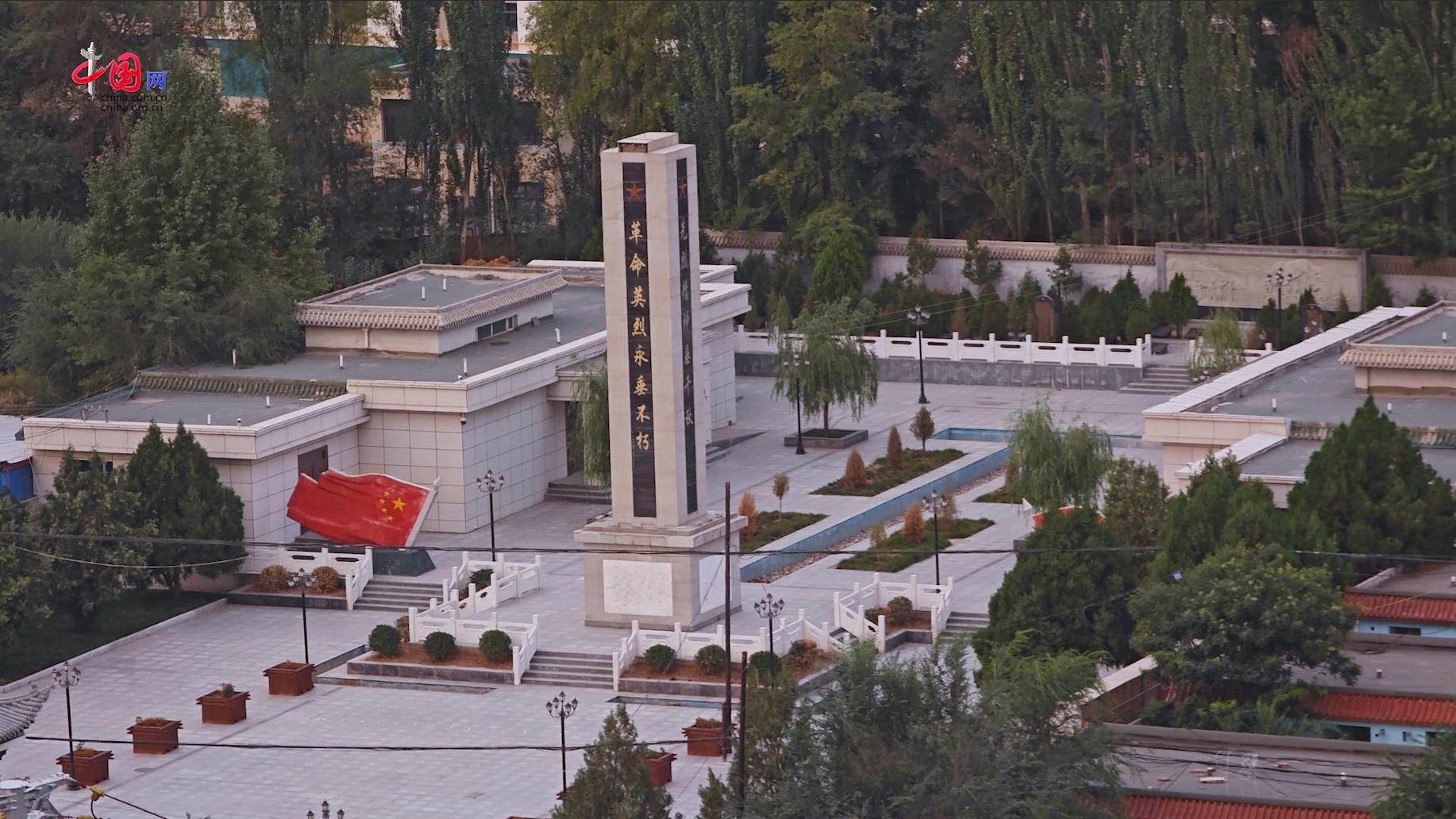
在循化縣城東,有一座革命烈士陵園,紀念塔浮雕上雕刻著“英雄救英雄”的光輝事跡。
In the east of Xunhua lies a revolutionary martyrs' cemetery, where a memorial tower is adorned with reliefs depicting the glorious deeds of “heroes saving heroes.”

馬明全(循化縣退役軍人事務局西路軍愛國主義教育中心主任)
Ma Mingquan, director of the West Route Army of Chinese Workers' and Peasants' Red Army patriotism education center, veterans affairs bureau of Xunhua
馬明全:1949年循化解放的時候,撒拉族和回族主要聚居在黃河沿岸。解放軍要渡過黃河,挺進青海(西寧)的時候,撒拉族當時的水手,他們的水性特別好,通過羊皮筏子、木頭筏子,或者是個人游泳等各種方式,幫助我們的中國人民解放軍渡過黃河。
Ma Mingquan: In 1949, when Xunhua was liberated, the Sala and Hui ethnic groups primarily resided along the Yellow River. As the Chinese People's Liberation Army (PLA) advanced towards Qinghai (Xining) and needed to cross the Yellow River, the Salar, who were skilled sailors at the time, used various methods such as sheepskin rafts, wooden rafts, and personal swimming to assist the PLA in crossing the river.
1954年,循化縣改稱“循化撒拉族自治縣”,撒拉族人民終於擁有了管理本民族內部事務的權利。撒拉族先民從中亞遷徙到循化,一路顛沛流離,到達循化時人數極少,但骨子中樂善好施、友好睦鄰的傳統讓這支“部落”得以成為中華民族大家庭中的一員。
In 1954, Xunhua County was renamed Xunhua Sala Autonomous County, granting the Salar the autonomy to manage internal affairs of their own ethnic group. The ancestors of the Sala migrated from Central Asia to Xunhua with a small population left after going through a lot of hardships along the way. However, their inherent tradition of benevolence, friendliness, and good neighborliness allowed this "tribe" to become a member of the large family of 56 Chinese ethnic groups.
韓慶功:按一般民族發展歷程來看,像撒拉族這樣一個弱小民族,頂多維持三四百年就沒有了。但是非常“奇怪”的是,撒拉族居然沒有消亡,而且一直存活到今天,而且活得很好,他居然跟上了中華民族偉大復興的歷史進程,完成了第一個百年目標,而且提前完成了,2017的時候,全面建成了小康社會。那麼如何走好未來的路?這是我們必須要思考的一個問題。我就想出了這麼四句話,一個是擁護中國共産黨,第二句話是熱愛偉大祖國,第三句話是建設美好家園,第四句話是追求幸福生活。
Han Qinggong: Looking at the general course of ethnic group development, a small ethnic group like Sala would typically only survive for three or four hundred years at most. However, it is quite remarkable that the Salar people have not only survived but also thrived. They have actively participated in the historical process of the great rejuvenation of the Chinese nation, achieving the first centennial goal ahead of schedule by fully building a moderately prosperous society in 2017. So, how can we continue the path to a better future? This is a question we must ponder. I have come up with four aspects: first, supporting the Communist Party of China; second, loving our great motherland; third, building a beautiful homeland; and fourth, pursuing a happy life.
“許乎”,猶如高原大地上的另一種黃河濤聲,也是難以割捨的一縷珍貴鄉愁,更是一朵民族團結綻放的“石榴花”。
"Xuhu," like the roaring of the Yellow River on the plateau, is a precious nostalgia that is hard to let go of. It is also a blooming"pomegranate flower" on the soil of ethnic solidarity.
推薦閱讀:大山大河孕育出的中華民族——循化故事










